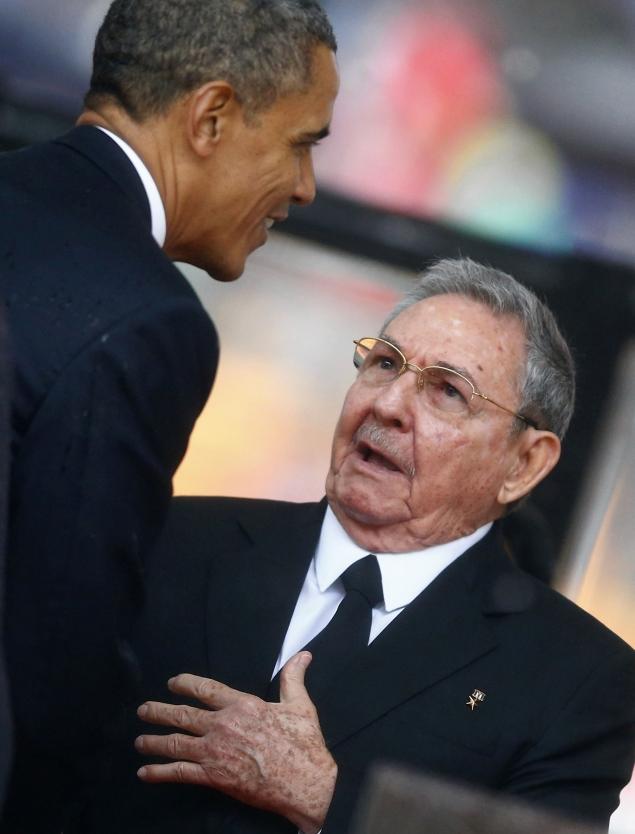In December 2014, the 5th Caribbean Community (CARICOM) – Cuba Summit was held in Havana to adopt a resolution, which focused on strengthening and integrating the Caribbean region through cooperative development and consolidation of resources.
The leaders of the CARICOM countries are beholden to Cuba for its financial support in improving the lives of their citizens through: the funding of the Caribbean Regional School of the Arts in Jamaica; the funding of the Centre for Treatment of Physical Disabilities to assist physically handicapped children, to be built in Guyana; the increase in scholarship monies for those students who are specializing in medicine; free medical care for citizens; environmental protection projects; demonstrated solidarity with CARICOM to continue to give aid to Haiti in its earthquake recovery efforts and the implementation of the revised Trade and Economic Cooperation Agreement between CARICOM and Cuba. There is no denying that Cuba has done a lot for the region.
Cuba has long been a friend to the Caribbean nations that surround it. So it is not surprising that these leaders, along with many others, feel that Cuba should be among the delegates that are present at the Seventh Summit of the Americas to be held in Panama from April 10 to April 11.
In June 2012 during the 42nd General Assembly of the Organization of American States (OAS), Ambassador Mayra Arosema, Secretary General of the Ministry of Foreign Affairs of Panama, said, “It will be an honor and a privilege for Panama to host the Seventh Summit of the Americas. I hope that all countries of the Americas will be present.”
Little did she know at that time that these countries would include Cuba.
Cuba was originally a part of the OAS but was suspended for many decades due to its relationship with the United States. The Progreso Weekly gave three scenarios that could play out: 1) The U.S. tries to bar an invitation to Cuba with mainly support from Canada; 2) The U.S. does not attend the Summit and has no input to the outcome; or 3) the U.S. accepts Cuba’s presence and further tries to mend its relationship with the ostracized country.
After the Panamanian government announced on Dec. 4, 2014, that it had invited Cuba to the summit, the State Department spokesperson, Jen Psaki, made it clear that the U.S. government was against Panama’s decision.
It seems they feel it is much too early and may be unwise to invite the country to be a part of the OAS.
At the 2012 Summit, Latin American countries as well as the CARICOM states threatened to boycott the summit if Cuba was not among the attendees.
Luis Martin, a spokesman for the Panama Foreign Ministry, told the media: “Cuba has confirmed that their highest-level officials will attend, but they have not indicated that Castro will be a part of that delegation.”
Despite objections from Washington, Secretary of State John Kerry reportedly had a softening of heart when he gave a speech in Miami. He said that “we must get beyond the perennial debate about attendance and focus on the substantive issues at the summit.”
The current vice president and foreign minister of Panama, Isabel de Saint Malo, had met with Secretary Kerry in September 2014 in Washington. She affirmed the relations between Panama and the U.S. has always been strong. “We’ve worked together through some very difficult times for Panama, and the U.S. has always been supportive. We are here to discuss issues of mutual interest. President (Juan Carlos) Valera’s foreign policy priorities are based on Panama as a country that promotes dialogue, Panama as a country that promotes consensus building, Panama as a country that helps to build bridges among countries.”
President Obama will travel to Jamaica and Panama from April 8 to 11. In Jamaica, he will meet with leaders from the Caribbean Community (CARICOM), and with Jamaican Prime Minister Portia Simpson-Miller to discuss America’s ongoing partnership with the region, including continued discussion on the Caribbean Energy Security Initiative.
The president will then travel to Panama, where he will participate with 34 other leaders in the Seventh Summit of the Americas. While in Panama, Obama will hold a meeting with Panamanian President Juan Carlos Varela, and meet with leaders from the Central American Integration System (SICA).
The theme of the Seventh Summit is “Prosperity with Equity: the Challenge of Cooperation in the Americas.” Seems quite appropriate, since Cuba and the U.S. have been sitting on opposing sides of the fence for so long. Hopefully the two countries will keep this theme at the forefront and not lose sight of what they are there to do.
